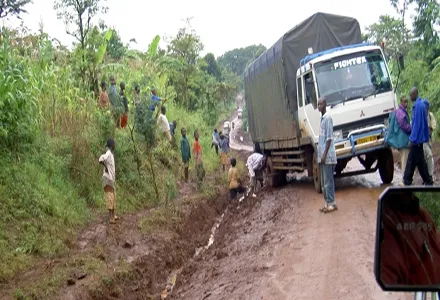Austrian contractor STRABAG is now commencing construction work on a new bus transport system in Tanzania. The €134 million contract will improve connections in capital Dar es Salaam. The new Bus Rapid Transit Infrastructure project will see upgrades to three major routes in the city. The deal is being split into two. One comprises upgrading the road from Magomeni to Kimara, including 15 bus stops, the Kimara terminal and the terminal Ubongo. The second is for upgrades to the route after Magomeni Kivukoni t
March 16, 2012
Read time: 2 mins
Austrian contractor 945 Strabag is now commencing construction work on a new bus transport system in Tanzania. The €134 million contract will improve connections in capital Dar es Salaam. The new Bus Rapid Transit Infrastructure project will see upgrades to three major routes in the city. The deal is being split into two. One comprises upgrading the road from Magomeni to Kimara, including 15 bus stops, the Kimara terminal and the terminal Ubongo. The second is for upgrades to the route after Magomeni Kivukoni that Kawawa Street from Magomeni to Morocco and the Strait of Msimbazi-Fire by Kariakoo including 14 bus stops and the Morocco-terminal. Interestingly STRABAG will build a central concrete roadway for each direction of travel, which will be for buses only. The existing routes will be widened in to accommodate the new lanes, as well as mixed traffic and new bike paths and paved walkways. Bus stops will be placed in the median strip every 500-700m. The deal also includes infrastructure works such as laying of water supply lines, the expansion of the wastewater system and the telecommunications network and new street lighting and traffic controls. The contract includes the rehabilitation and expansion of three major arterial roads with a total length of 21.1km, connecting the city and the harbour with the western country, Burundi and Rwanda. The work has to be complete within 36 months, with 17km of the link finished within 24 months. The deal forms part of Tanzania’s Second Central Transport Corridor Project, designed to boost the country's economic growth with an efficient transport system. The main components are the urban transport system in Dar es Salaam, the highways and Zanzibar airport.








